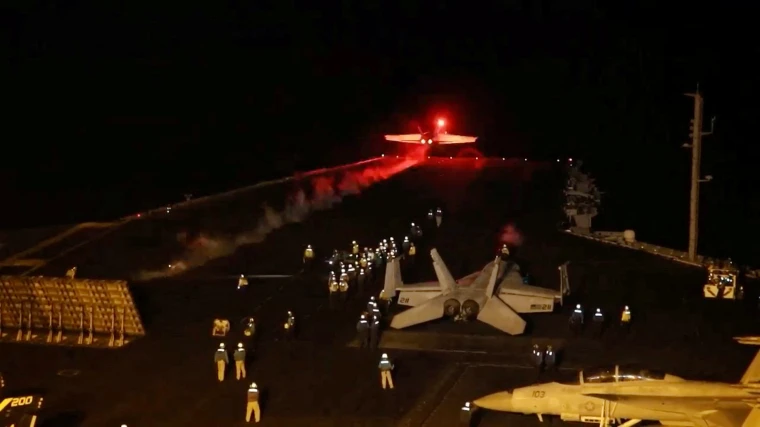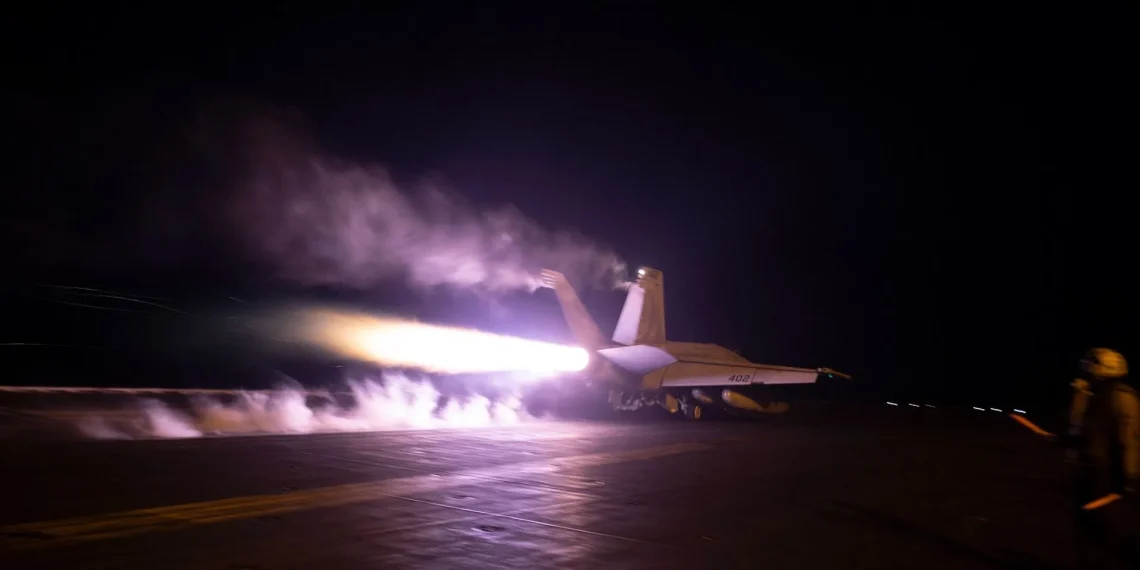In a coordinated effort, the United States and Britain launched strikes against 36 Houthi targets in Yemen on the second day of a major U.S. operation targeting Iran-linked groups. This response follows a recent deadly attack on American troops.
The strikes specifically targeted buried weapons storage, missile systems, launchers, and other capabilities utilized by the Houthis to attack shipping in the Red Sea. Thirteen locations across Yemen were pinpointed in this operation.
U.S. Defense Secretary Lloyd Austin emphasized that this collective action sends a clear message to the Houthis, warning of further consequences if they persist in their illegal attacks on international shipping and naval vessels.
These strikes in Yemen coincide with the ongoing U.S. military retaliation for the killing of three American soldiers in a drone strike by Iran-backed militants in Jordan. The initial retaliation, conducted on Friday, hit over 85 locations in Iraq and Syria linked to Iran’s Islamic Revolutionary Guard Corps and its supported militias, resulting in approximately 40 casualties.
While Iran-backed militias are accused of attacking U.S. bases in Iraq, Syria, and Jordan, Yemen’s Houthi rebels, with ties to Iran, have consistently targeted commercial and warships in the Red Sea.
Escalating violence in the Red Sea has prompted major shipping lines to divert from the critical trade route, opting for longer routes around Africa. This shift has not only increased costs but has also raised concerns about global inflation, impacting Egypt’s crucial foreign revenue from the Suez Canal.
Despite the United States conducting over a dozen strikes against Houthi targets in recent weeks, the group’s attacks have not been deterred. British Defence Minister Grant Shapps expressed confidence that the latest strikes have further degraded Houthi capabilities.
The strikes on Sunday received support from Australia, Bahrain, Canada, Denmark, the Netherlands, and New Zealand, targeting missile capabilities, drone storage, operations sites, radars, and helicopters.

The Pentagon clarified its intention to avoid direct war with Iran, emphasizing a strategy that combines limited military strikes and sanctions to weaken the Houthis without directly confronting Iran.
Iran’s response remains uncertain, but its foreign ministry spokesperson criticized the U.S. actions in Iraq and Syria, anticipating increased tension and instability. The Houthi-run Yemeni News Agency reported 14 raids on Saturday in the governorates of Taiz and Hodeidah. President Biden’s emerging strategy on Yemen aims to weaken the Houthi militants while avoiding direct confrontation with Iran, their main sponsor.




